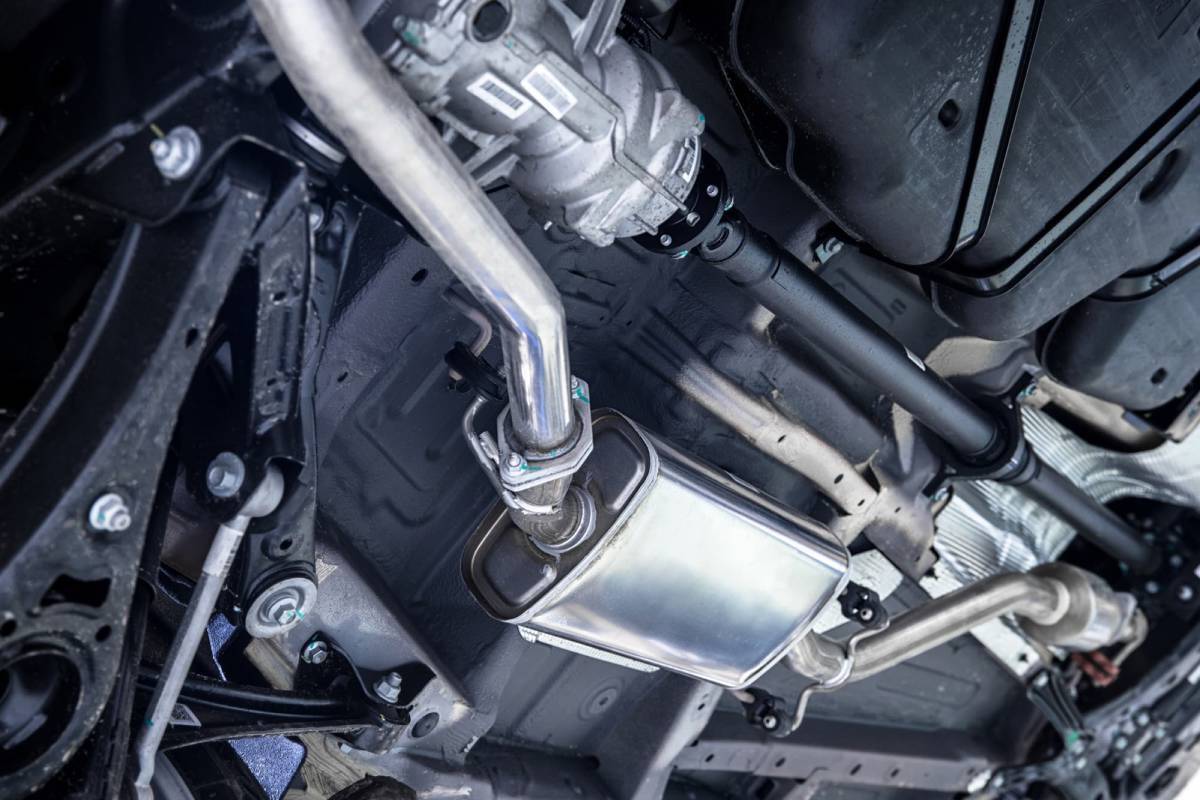
Why do cars have exhaust systems? Cars have exhaust systems to reduce harmful emissions, improve engine performance, and decrease noise. These systems channel exhaust gases away from the engine, converting toxic pollutants into less harmful substances before releasing them into the atmosphere. Catalytic converters play a crucial role in this process by breaking down carbon monoxide, hydrocarbons, and nitrogen oxides. Additionally, mufflers help minimize the noise produced by the engine. Without an effective exhaust system, vehicles would not only pollute more but also perform poorly and be much louder. Understanding the importance of exhaust systems can help you appreciate the engineering behind cleaner, quieter, and more efficient cars.
What is Exhaust?
Exhaust systems are crucial for vehicles, ensuring they run smoothly and safely. They manage emissions, reduce noise, and improve engine performance. Here are some fascinating facts about exhaust systems.
-
Exhaust systems reduce harmful emissions by converting toxic gases into less harmful substances before releasing them into the atmosphere.
-
Catalytic converters are essential components that help reduce carbon monoxide, hydrocarbons, and nitrogen oxides in exhaust gases.
-
The first catalytic converter was introduced in 1975 to meet the U.S. Environmental Protection Agency's stricter emission standards.
-
Oxygen sensors monitor the amount of oxygen in the exhaust gases, helping the engine control module adjust the air-fuel mixture for optimal combustion.
-
Modern exhaust systems often include multiple oxygen sensors to ensure precise control over emissions.
Components of an Exhaust System
An exhaust system comprises several key components, each playing a vital role in its overall function. Let's explore these components.
-
Exhaust manifold collects exhaust gases from the engine's cylinders and directs them into the exhaust pipe.
-
Exhaust pipes transport the gases from the manifold to the catalytic converter and muffler.
-
Mufflers reduce the noise produced by the engine's exhaust gases, making the vehicle quieter.
-
Resonators work with mufflers to further reduce noise and improve exhaust flow.
-
Tailpipes are the final section of the exhaust system, releasing the treated gases into the atmosphere.
Importance of Exhaust Maintenance
Regular maintenance of the exhaust system is essential for vehicle performance and safety. Here are some reasons why.
-
Preventing leaks in the exhaust system helps avoid harmful gases entering the vehicle cabin.
-
Regular inspections can identify issues like rust, cracks, or loose connections before they become serious problems.
-
Replacing worn-out components ensures the exhaust system functions efficiently, reducing emissions and improving fuel economy.
-
Cleaning the catalytic converter can prevent blockages that reduce engine performance and increase emissions.
-
Checking oxygen sensors regularly helps maintain optimal air-fuel mixture, improving engine efficiency.
Innovations in Exhaust Technology
Advancements in technology have led to significant improvements in exhaust systems. Here are some notable innovations.
-
Selective Catalytic Reduction (SCR) systems use a urea-based solution to reduce nitrogen oxide emissions in diesel engines.
-
Diesel Particulate Filters (DPF) capture and store soot from diesel exhaust gases, reducing particulate emissions.
-
Active Exhaust Systems allow drivers to control the sound of their vehicle's exhaust, offering a customizable driving experience.
-
Variable Valve Timing (VVT) improves engine efficiency by adjusting the timing of exhaust valve openings.
-
Electric exhaust gas recirculation (EGR) systems reduce nitrogen oxide emissions by recirculating a portion of the exhaust gases back into the engine.
Environmental Impact of Exhaust Systems
Exhaust systems play a significant role in reducing the environmental impact of vehicles. Here are some ways they help.
-
Reducing greenhouse gases like carbon dioxide helps combat climate change.
-
Lowering nitrogen oxide emissions improves air quality and reduces smog formation.
-
Decreasing particulate matter emissions from diesel engines helps protect public health.
-
Promoting fuel efficiency reduces the overall consumption of fossil fuels.
-
Encouraging the development of cleaner technologies like electric and hybrid vehicles.
Fun Facts About Exhaust Systems
Exhaust systems have some interesting and lesser-known aspects. Here are a few fun facts.
-
Motorcycles often have louder exhausts because they lack the space for large mufflers found in cars.
-
Some high-performance cars use titanium exhaust systems for their lightweight and heat-resistant properties.
-
Aftermarket exhaust systems can improve a vehicle's performance and sound, making them popular among car enthusiasts.
-
Exhaust flames can occur in high-performance vehicles when unburned fuel ignites in the exhaust system.
-
The "popcorn" sound in some exhaust systems is caused by a phenomenon called "exhaust backfire," where unburned fuel combusts in the exhaust pipe.
-
Exhaust tips can be customized for aesthetic purposes, with various shapes, sizes, and finishes available.
Final Thoughts on Exhaust
Exhaust systems are more than just pipes under your car. They play a crucial role in reducing emissions, improving performance, and even enhancing the sound of your vehicle. From catalytic converters to mufflers, each component has a specific job that contributes to the overall efficiency and safety of your ride. Regular maintenance can prevent costly repairs and keep your car running smoothly. Understanding the basics of exhaust systems can help you make informed decisions about upgrades and repairs. Whether you're a car enthusiast or just someone who wants to keep their vehicle in top shape, knowing these facts can be incredibly beneficial. So next time you hear a rumble or notice a strange smell, you'll have a better idea of what's going on under the hood. Stay informed, stay safe, and keep your exhaust system in check.
Was this page helpful?
Our commitment to delivering trustworthy and engaging content is at the heart of what we do. Each fact on our site is contributed by real users like you, bringing a wealth of diverse insights and information. To ensure the highest standards of accuracy and reliability, our dedicated editors meticulously review each submission. This process guarantees that the facts we share are not only fascinating but also credible. Trust in our commitment to quality and authenticity as you explore and learn with us.
